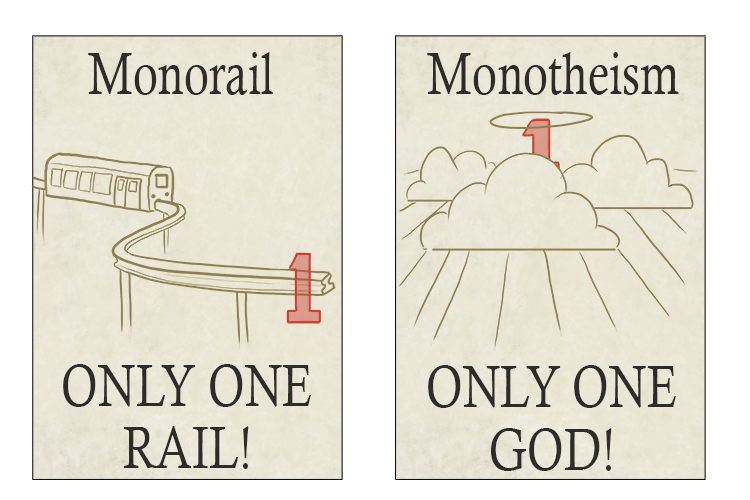Monotheism – Belief that there is only one God
(Pronounced mohn-uh-thee-is-um mohn rhymes with John)
Note: The belief that there is only one God is reflected in the first commandment. "You shall have no other God before me" (Exodus chapter 20, verse 3).
To remember the meaning of Monotheism in Judaism, use the following mnemonic:
In Monopoly, the theory is that someone (monotheism) wins everything and can act like God. One God.

Another way of remembering Monotheism is:
The monorail is built on the theory that there is (monotheism) only one rail, just like there's only one God in Heaven.

Monotheism is distinct from polytheism, which is the belief in a number of gods, and from atheism, which is the belief that there is no god. It is also very different from agnosticism, which is the view that the existence or nonexistence of a god or of gods is unknown or unknowable.
Monotheism is believed to have started with Abraham, a founding figure of Judaism as well as Christianity and Islam.

Abraham rebuked people who worshipped many gods, insisting there could only be one true god, and that idolatry (the worship of different idols or gods) was against God's principles.
Belief in one god results in the rejection of other belief systems as false religions, and this rejection partly explains the exceptionally aggressive or intolerant stance of the monotheistic religions in the history of the world.
The conception of all other religions as 'idolatry' has often been used to justify the destructive and fanatical action of the religion that is considered to be the only true one.




